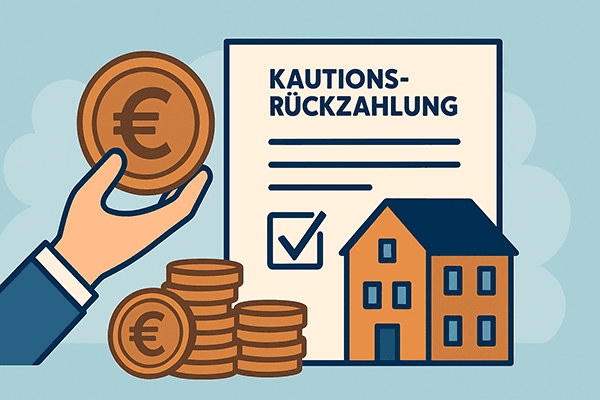Nice to have you here
at WG-Gesucht.de!
at WG-Gesucht.de!
Select Credit Report
Please choose a provider for your credit report.
 After moving out, landlords may only withhold the deposit for valid reasons — typically, repayment must occur within a few months once all obligations are fulfilled.
After moving out, landlords may only withhold the deposit for valid reasons — typically, repayment must occur within a few months once all obligations are fulfilled.
When moving out of an apartment or when a flatmate leaves a shared flat, tenants naturally wonder when their security deposit will be refunded.
In principle, the deposit serves as financial security for the landlord — for example, in case of damages, unpaid rent, or pending utility costs. Once the tenancy is fully terminated and all obligations are met, the tenant is entitled to repayment.
However, the landlord is not required to refund it immediately upon key handover. They are entitled to a reasonable inspection period to review possible claims.
German courts generally allow landlords a review period of three to six months after the tenancy ends. During this time, they may withhold all or part of the deposit to cover potential utility adjustments or repair costs.
Important: Only legitimate claims justify withholding. If the apartment is in proper condition and no rent is outstanding, the landlord must return the full deposit including interest.
After this period, tenants should formally request repayment in writing and set a deadline for transfer.
In a shared flat, repayment depends on who is listed in the rental contract:
To prevent disputes, every payment or refund should be documented in writing, ideally with a handover report and signed confirmation.
A landlord may keep part or all of the deposit if:
A general or indefinite withholding “just in case” is not permitted. If no valid claims exist, the deposit must be repaid promptly. If the landlord refuses, tenants can pursue repayment through legal action.
Good communication, documentation, and patience ensure a smooth and fair refund process.
Usually within three to six months after moving out, once all claims have been reviewed and settled.
Only those listed on the lease can claim their share, usually at the end of the overall tenancy or via the main tenant.
Only for valid reasons — such as property damage, unpaid rent, or pending utility bills.